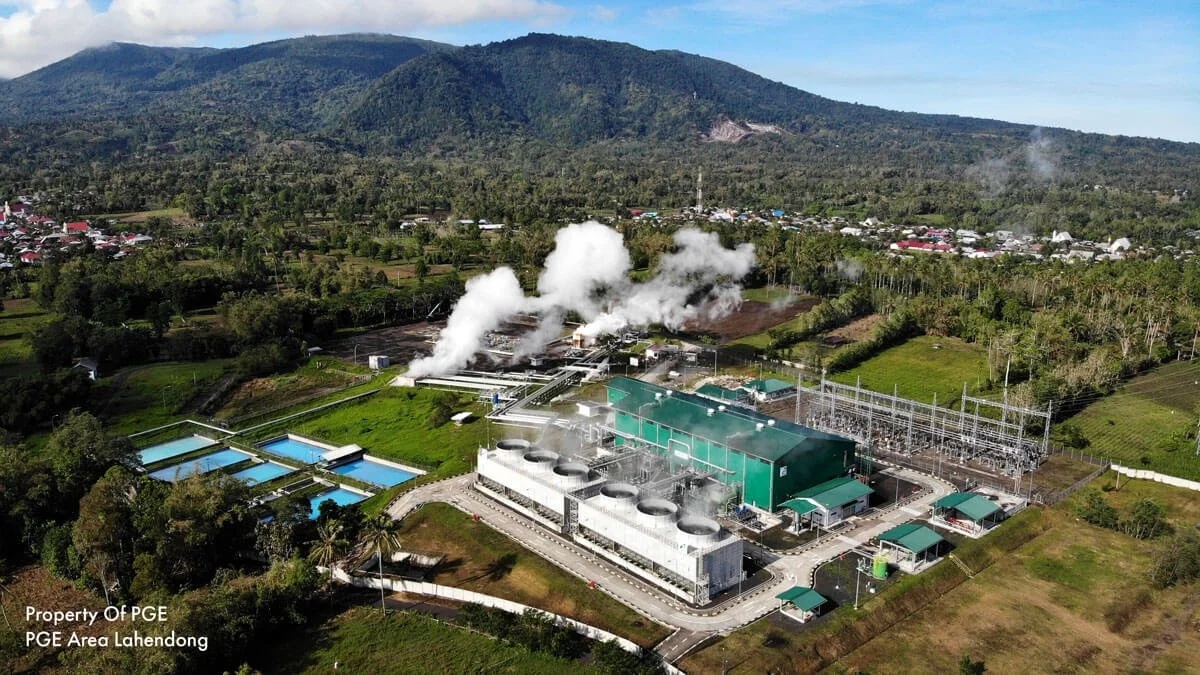Geothermal on the Rise: Indonesia's Energy Future
Indonesia boasts immense geothermal potential, estimated at 23.7 GW –the second-largest in the world after the United States. Despite this vast resource, only 10-12% has been developed so far, leaving a significant, untapped opportunity. Recognizing this, the government is ramping up efforts to dramatically accelerate geothermal development.
A Strategic Push: New Auctions, Incentives & Infrastructure
In 2025, the Ministry of Energy and Mineral Resources (ESDM) officially announced the auction of 10 new geothermal working areas (WKPs), from Danau Ranau to Gunung Galunggung, Telaga Ranu, and Banda Baru. The auction will be conducted through the new GENESIS platform, a move designed to replace the traditional, manual process with a more transparent and integrated e-tendering system. This marks a significant shift aimed at streamlining investment and speeding up development.
To prioritise the 10 WKPs, market sounding was conducted earlier in April, and Banda Baru (25 MW) was confirmed as one of the first to go live in May. This reflects a more aggressive push compared to 2024, when only 7 WKPs were auctioned, amounting to 320 MW and US$1.82 billion in agreements.
Recognizing that investors have faced underwhelming returns, ESDM is preparing a revision to Government Regulation No. 7 of 2017 to remove development bottlenecks. The proposed changes include:
Moving WKP auctions online
Reviewing electricity pricing under Presidential Regulation No. 112 of 2022
Enhancing incentives to raise Internal Rate of Return (IRR) to 10-11%
These changes could significantly improve project feasibility and attract both domestic and foreign investment.
Partnership & International Momentum
The sector is gaining significant international momentum. On August 27, 2025, Indonesia just signed a framework agreement between Sinar Mas Group and First Gen Geothermal – the Philippines largest renewable energy producer. This collaboration highlights the growing regional synergies and the potential for shared technical expertise and capital flows across Southeast Asia.
Meanwhile, international oil and gas players are returning to Indonesia’s geothermal space. Chevron, formerly active in Indonesia’s geothermal development in West Java and the Philippines, is revisiting the opportunity. Similarly, INPEX has formalized an MoU with PLN Indonesia Power to explore strategic geothermal development, including projects like Muara Laboh and Rantau Dedap. They are targeting 170 MW through the Muara Laboh project and are pushing for streamlined approval proceses. This renewed interest from oil major companies aligns with the broader global shift of energy companies toward renewables, recognizing geothermal as a reliable source of clean baseload power.
Benefits on Multiple Fronts
Given Indonesia;s immense resource and energy demand, geothermal energy must play a larger role in the country’s energy mix. The new National Electricity Supply Business Plan (RUPTL) shows that Indonesia aims to increase its renewable energy share to 31% by 2050, with geothermal expected to be a significant contributor. The benefits are multifaceted:
Energy Security & Climate Resilience: geothermal offers stable, carbon-free baseload power which is critical to reducing Indonesia’s reliance on coal and meeting its net-zero ambitions.
Economic Uplift: New projects drive job creation, infrastructure development, and attract private and foreign capital.
Regional Leadership: Indonesia can emerge as Southeast Asia’s clean energy hub, spurred by these initiatives.
Corporate Evolution: the participation of oil majors signals a broader shift from fossil-focused operations toward diverse, sustainable energy portfolios.
Looking Ahead
Indonesia’s geothermal sector is reaching a turning point, driven by actionable tenders, investor-friendly regulation, regional partnerships, and meaningful engagement from global energy players. The key to success will be flawless execution: ensuring regulatory clarity, transparent auctions, and cultivating public trust through community engagement to de-risk projects.
If these moves succeed, Indonesia's vast untapped geothermal power could become a global model of how a fossil-heavy nation pivots to clean, reliable energy cementing its leadership in the green transition.


